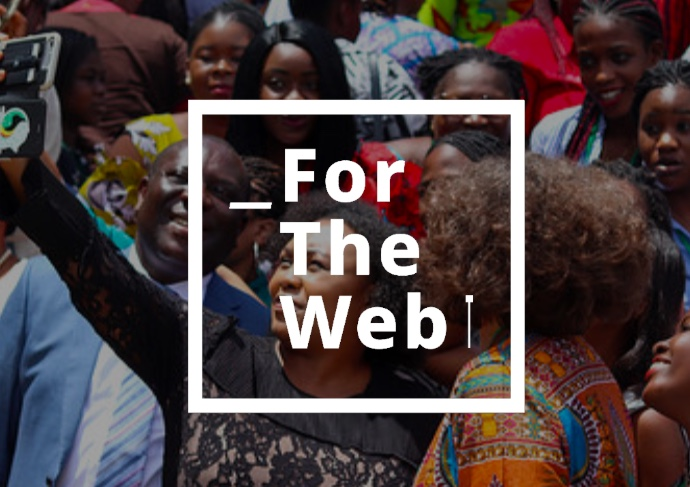On the occasion of the Web Summit in Lisbon, Mounir Mahjoubi, Secretary of State for the Digital Economy, announced on behalf of the Government the signature by France of the #ForTheWeb pact, launched by Sir Tim Berners-Lee and the World Wide Web Foundation.
For the past few years, Berners-Lee has been making public statements to warn about the problems of the Internet: the loss of control over our personal data, misinformation and targeted advertising (" The web has failed to serve humanity as it should have").
France is the first country to sign this pact.
The principles of the "Pact for the Web
"The Web was designed to bring people together and make knowledge freely available. Everyone has a role to play in making the Web work for humanity. By adhering to the following principles, governments, businesses, and citizens around the world can help protect the open Web as a public good and a fundamental right for all.Governments commit to:- Ensure that everyone can connect to the Internet, so that anyone, regardless of identity or location, can actively participate online.
- Maintain the constant availability of the Internet, so that no one is deprived of their right to full access to the Internet.
- Respect the fundamental right of individuals to privacy, so that everyone can use the Internet freely, safely and without fear.
- To make the Internet affordable and accessible to all so that no one is excluded from the use and future of the Web.
- Respecting consumers' privacy and personal data, and allowing individuals to maintain control over their privacy and their online lives.
- Develop technologies that support the best of humanity, so that the Web is truly a public good that puts people first.
- To be creators and collaborators on the Web, so that it presents rich and relevant content for everyone.
- Build strong communities that debate in a civil manner and respect human dignity, so that everyone feels safe and welcome online.
- Advocate to keep the Web open and a universal public resource for users around the world, now and in the future.
The Case for the Web
Launched as part of the #ForTheWeb campaign, The Case for the Web reflects on what the Web has enabled humanity to accomplish over the past 30 years, examines the current trends that threaten its future, and outlines the steps we must take to reverse these trends and ensure the Web remains free and open for all."The threats to the Web today are many and multifaceted. More than half of the world's population is still offline and the growth of Internet users is slowing dramatically. The distributed power of the Web has shifted to fall into the hands of only a few, online abuse is on the rise, and the content we see is increasingly susceptible to manipulation. More than 1.2 billion Internet users live in countries where net neutrality is not protected and more than 1.5 billion people live in countries without comprehensive data privacy legislation, making them particularly vulnerable to increasingly frequent incidents involving personal data breaches."The report presents a number of policy recommendations "for a web that is accessible and affordable for all, safe and welcoming for all, and empowering for all . It proposes, among other things, to work towards a web that is " multilingual and diverse, that treats all online traffic equally, and that returns power to the people".
Paris to host Digital Week from November 11 to 14
Paris Digital Week combines three major international summits: the Paris Peace Forum, the Internet Governance Forum (IGF) and the Govtech Summit.- The IGF examines issues related to the governance and organization of the Internet. The Paris meeting, entitled For an Internet of Trust, will be an opportunity to address the future of the Internet, through the challenges of trust, regulation, security, stability, and the role of state, institutional and non-state actors. More than 2000 participants are expected.
- The GovTech Summit will bring together European innovators and policy makers, investors and academics, governments and local authorities, as well as members of civil society, to imagine the technological government of tomorrow. The summit will focus on ways to support the emergence of a European ecosystem of innovators in the public sphere, to improve the use of new technologies in the public sector and the collaboration between governments and startups.
Références :





